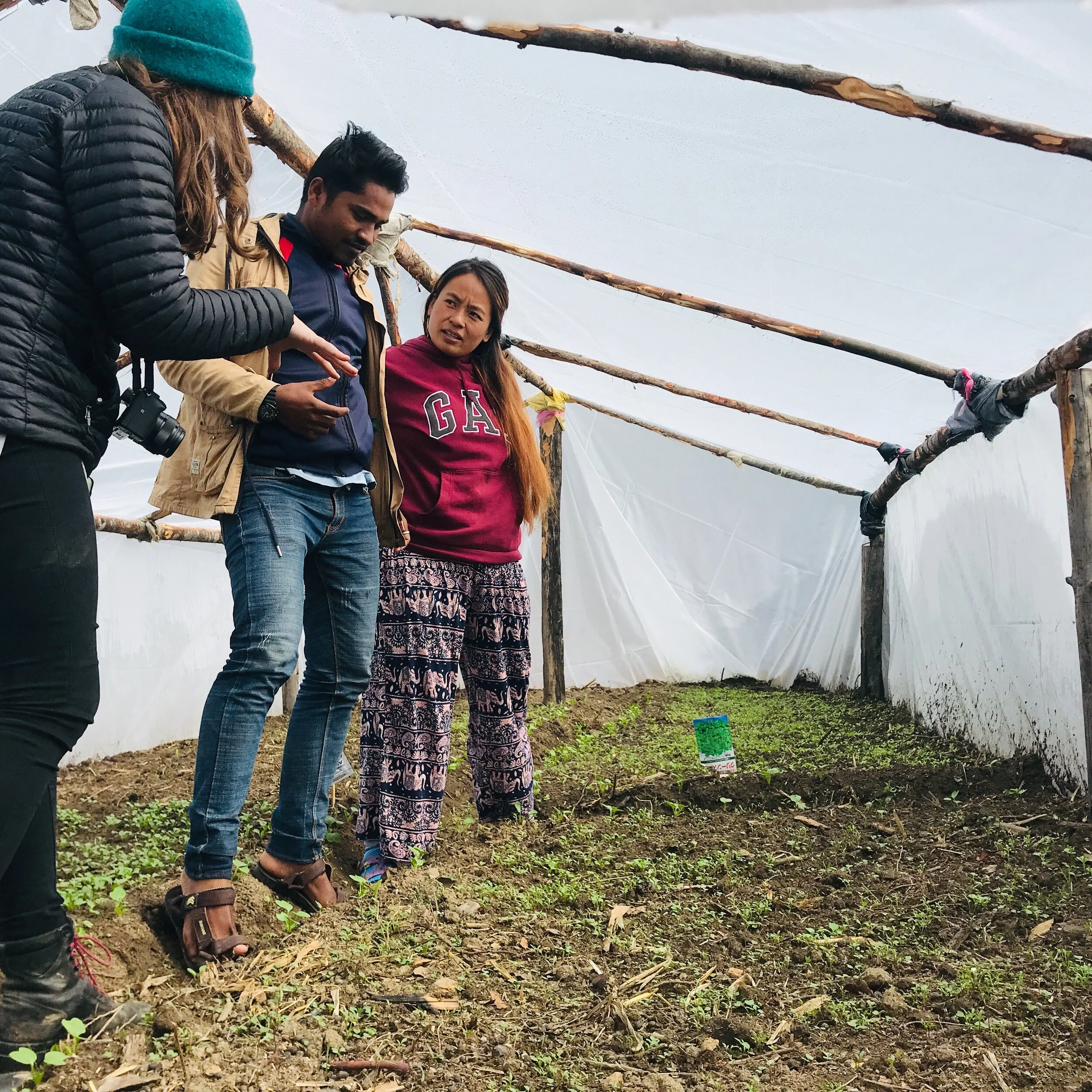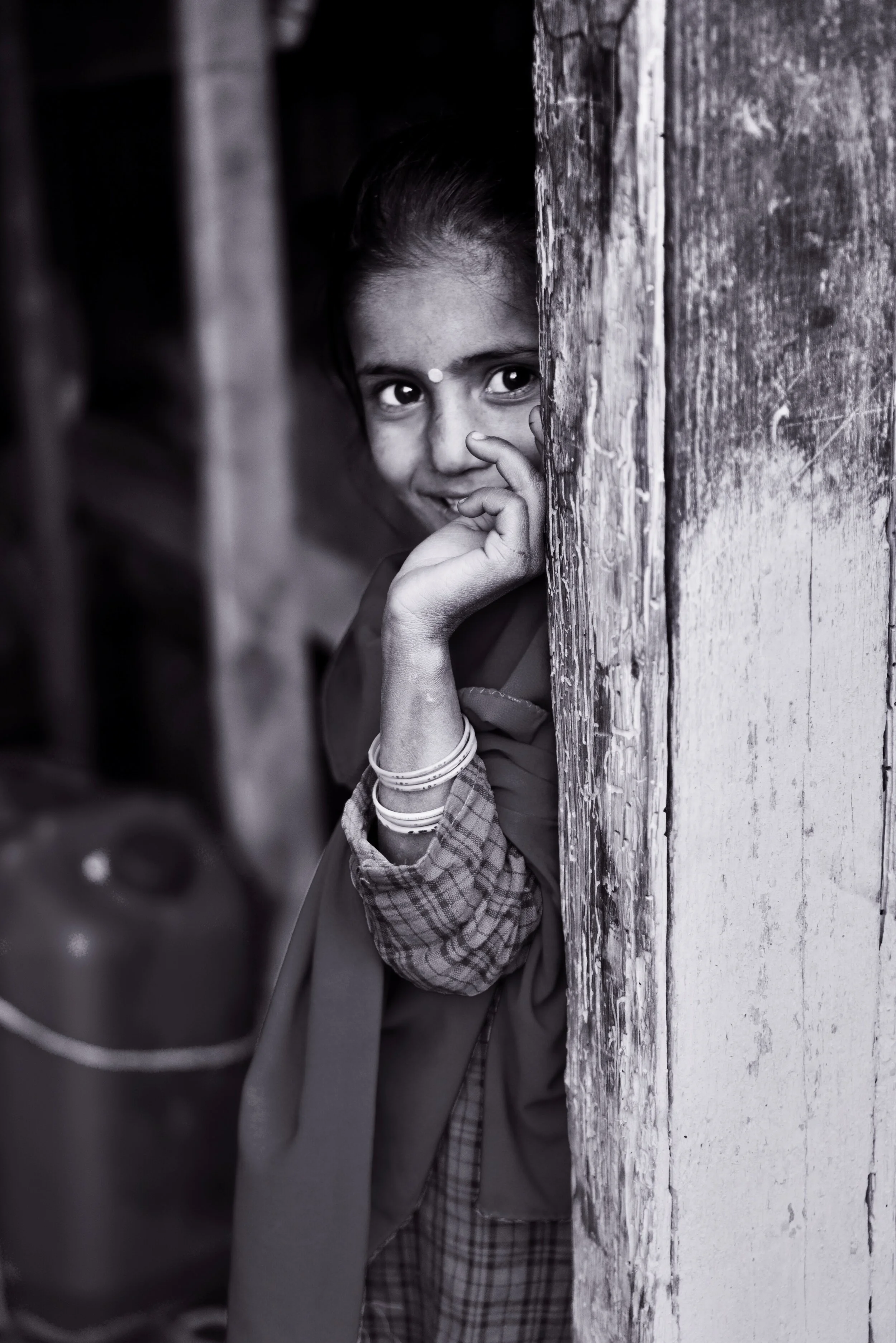"There is an intimate connection between women and the environment. Since we might not think of the link between agriculture and gender, we don't realize that it's women that are typically closer to environmental degradation, whether that's soil, water, or pollution. Women have the most stress, and lose educational and economic opportunities, when these things go wrong. That’s why this work is so important.”
Women’s Agriculture Initiative
Hannah, at right with Oda Foundation staff, is a Master's student in City and Regional Planning at Cornell University. She brought her expertise to Oda in December 2019, conducting field research for our Women's Agriculture Initiative. Read her thoughts and see her photography, below.
Read the full interview, here. [HYPERLINK]
Now that your agriculture surveys with Raj Kumari [Oda Foundation Women's Empowerment Manager] are done, what impacts are you expecting?
I envision using Oda Foundation land as a test ground to show how small changes in farming practices using local, sustainable methods with readily available materials can make a large impact. These practices range from mulching, which can help retain water, to how to construct a rainwater collection system off a roof, to basic plant bed planning. Even in the Oda Foundation gardens, many of these methods for improving yields aren't being used.
For readers who haven't visited Oda, can you fill them in on the agriculture situation here?
Similarly to many parts of the world, Oda has very dramatic seasonal shifts with water availability - an extreme dry season and wet season - which make it very difficult to plant when you don't have a systematic irrigation system. People have to be smart about how they're using the land. People are eating a lot of grains and starch (potatoes and beans), but not a lot of vegetables like squash and greens. In the cold season, people only grow two or three plants - two grains and a small plot of spinach.
There is no local food system where people buy or exchange food, only a few small shops where you buy unhealthy snacks which are brought into Oda from a neighboring village. Most families only produce half or less than half of their yearly food intake, so women must travel up to three hours to buy food at the closest market.
Can you tell me a main takeaway from your work in Oda, so far?
People were complaining about the amount of water as there is hardly any yield for water-intensive crops. A challenge for us is how to address that problem when we can't easily - or cheaply - change water sources in Oda. Therefore, I am working to develop capacity-building trainings that can help women make the water they do have go further.














